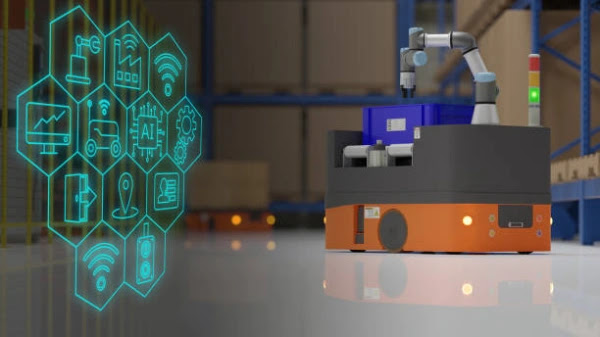Featured
- Get link
- X
- Other Apps
Smart Waste Management Solutions
Sustainable Cities
Introduction
As urbanization continues to accelerate globally, the
management of waste has become a critical challenge for cities striving to
achieve sustainability. Traditional waste management methods are often
inefficient, resource-intensive, and environmentally harmful. However, with the
advent of smart technologies, cities have the opportunity to revolutionize
their waste management systems and move towards more sustainable practices.
This article explores smart waste management solutions and their potential to create
cleaner, healthier, and more resilient cities.
Challenges in Traditional Waste Management
Traditional waste management systems typically involve the
collection, transportation, and disposal of waste in landfills or incineration
facilities. However, these methods are fraught with challenges that compromise
environmental quality and public health. For instance, inefficient waste
collection routes can result in unnecessary fuel consumption and air pollution
from collection vehicles. Additionally, overflowing landfills emit greenhouse
gases and leach harmful chemicals into soil and water, posing significant
environmental risks.
Moreover, the lack of real-time monitoring and data
analytics makes it difficult for waste management authorities to optimize
collection schedules and allocate resources effectively. As a result, cities
may struggle to keep pace with the growing volume of waste generated by urban
populations, leading to overflowing bins, illegal dumping, and unsightly
litter.
Smart Waste Management Solutions
Smart waste management solutions leverage technology to
address these challenges and optimize the collection, sorting, and disposal of
waste. These solutions integrate sensors, data analytics, and communication
networks to enable real-time monitoring and management of waste streams. By
collecting and analyzing data on waste generation, collection patterns, and bin
fill levels, cities can optimize collection routes, reduce operational costs,
and minimize environmental impacts.
One key component of smart waste management systems is the
deployment of sensor-equipped waste bins. These bins are equipped with sensors
that monitor fill levels and transmit data to a central management platform via
wireless networks. By continuously monitoring fill levels, waste management
authorities can optimize collection routes and schedules, ensuring that bins
are emptied promptly when they reach capacity. This not only reduces fuel
consumption and emissions from collection vehicles but also prevents
overflowing bins and littering.
Furthermore, smart waste bins can be equipped with
compaction mechanisms to maximize capacity and reduce the frequency of
collections. Compaction technology compresses waste within the bin, allowing it
to hold more trash before reaching capacity. This not only reduces the number
of collection trips required but also minimizes the visual impact of bins on
city streets.
In addition to optimizing waste collection, smart
technologies can also facilitate the sorting and recycling of waste materials.
Automated sorting systems use sensors and robotic arms to separate recyclable
materials from mixed waste streams, increasing the efficiency of recycling
operations and reducing contamination. These systems can identify and sort
various types of materials, including plastics, glass, paper, and metal, with a
high degree of accuracy, improving the quality of recycled materials and
reducing the amount of waste sent to landfills.
Another innovative approach to smart waste management is the
use of data analytics and predictive modeling to forecast waste generation
patterns and optimize resource allocation. By analyzing historical data on
waste generation, population demographics, and environmental factors, cities
can develop predictive models that anticipate future waste volumes and trends.
This allows waste management authorities to allocate resources more
effectively, plan for capacity expansions, and implement targeted waste
reduction initiatives.
Benefits of Smart Waste Management
The adoption of smart waste management solutions offers
numerous benefits for cities, residents, and the environment. By optimizing
waste collection routes and schedules, cities can reduce fuel consumption,
vehicle emissions, and traffic congestion associated with waste collection
operations. This not only improves air quality and reduces greenhouse gas
emissions but also lowers operational costs for waste management authorities.
Moreover, smart waste management systems can enhance the
cleanliness and aesthetics of urban environments by reducing littering and
overflowing bins. By emptying bins promptly when they reach capacity, cities
can maintain tidy streetscapes and public spaces, enhancing quality of life for
residents and visitors alike. Additionally, the use of compaction technology
can minimize the visual impact of waste bins and reduce the space required for
storage, freeing up valuable land for other uses.
Furthermore, smart waste management solutions can support
cities' sustainability goals by increasing recycling rates and reducing the
amount of waste sent to landfills. By implementing automated sorting systems
and improving the quality of recycled materials, cities can create a more
circular economy and reduce their reliance on finite natural resources. This
not only conserves energy and reduces greenhouse gas emissions associated with
waste disposal but also creates economic opportunities for recycling industries
and reduces the need for landfill expansion.
Challenges and Considerations
Despite the numerous benefits of smart waste management,
cities may face challenges in implementing these solutions. One key challenge
is the initial investment required to deploy sensor-equipped bins,
infrastructure upgrades, and data management systems. While the long-term cost
savings and environmental benefits of smart waste management may justify these
investments, securing funding and garnering support from stakeholders can be
challenging.
Moreover, cities must address concerns related to data
privacy and cybersecurity when implementing smart waste management solutions.
The collection and analysis of data on waste generation and collection patterns
raise privacy concerns among residents, who may be wary of surveillance and
data tracking. Additionally, the use of wireless communication networks and
cloud-based platforms increases the risk of data breaches and cyberattacks,
requiring robust security measures and compliance with data protection
regulations.
Furthermore, the success of smart waste management initiatives
depends on effective stakeholder engagement and collaboration. Cities must work
closely with residents, businesses, waste management companies, and technology
providers to ensure that solutions are tailored to local needs and priorities.
Public education and outreach campaigns can also raise awareness about the
benefits of smart waste management and encourage behavior change among
residents, such as proper waste sorting and recycling practices.
Conclusion
Smart waste management solutions offer a promising approach
to addressing the challenges of urban waste management and advancing
sustainability in cities. By leveraging technology to optimize waste
collection, sorting, and recycling, cities can improve environmental quality,
enhance public health, and create cleaner, more livable urban environments.
However, successful implementation requires careful planning, stakeholder
engagement, and investment in infrastructure and technology. With continued
innovation and collaboration, smart waste management can play a crucial role in
building more resilient and sustainable cities for future generations.
- Get link
- X
- Other Apps


